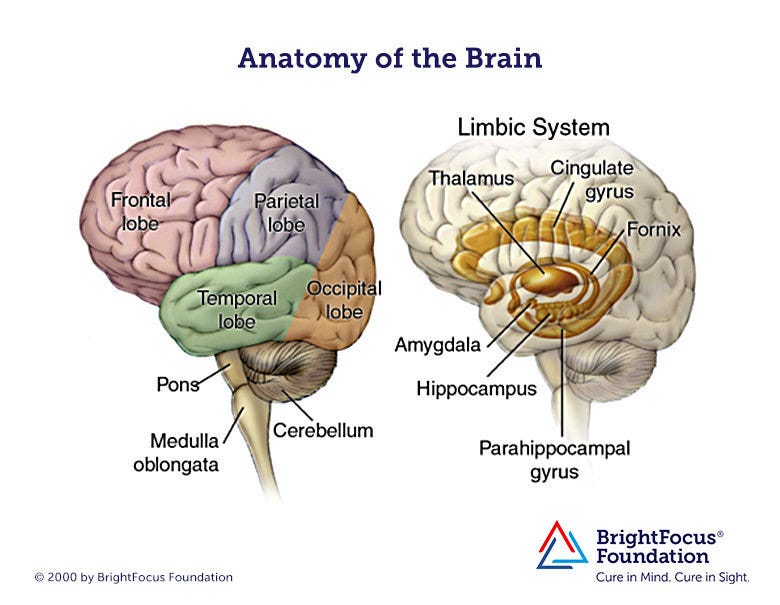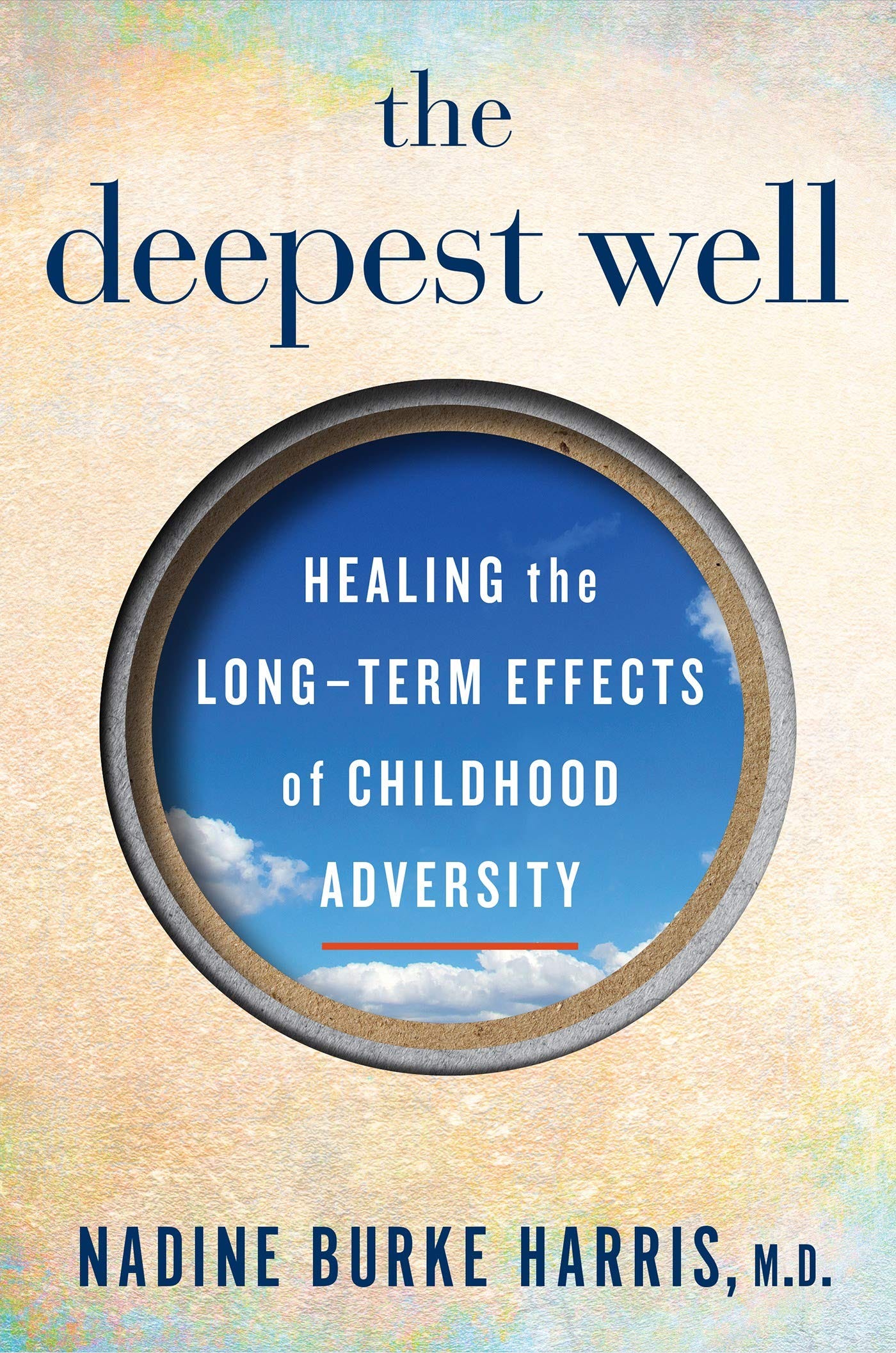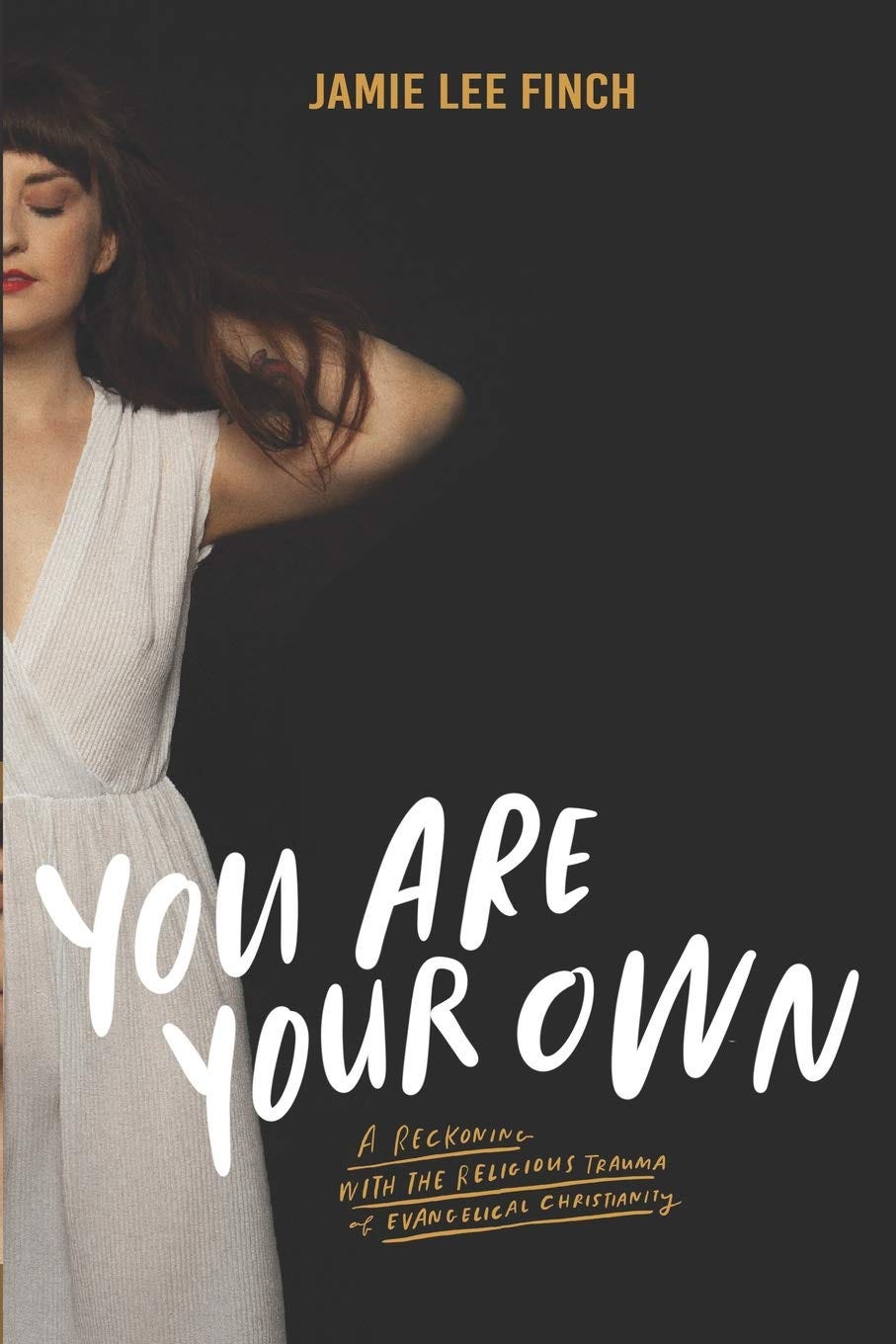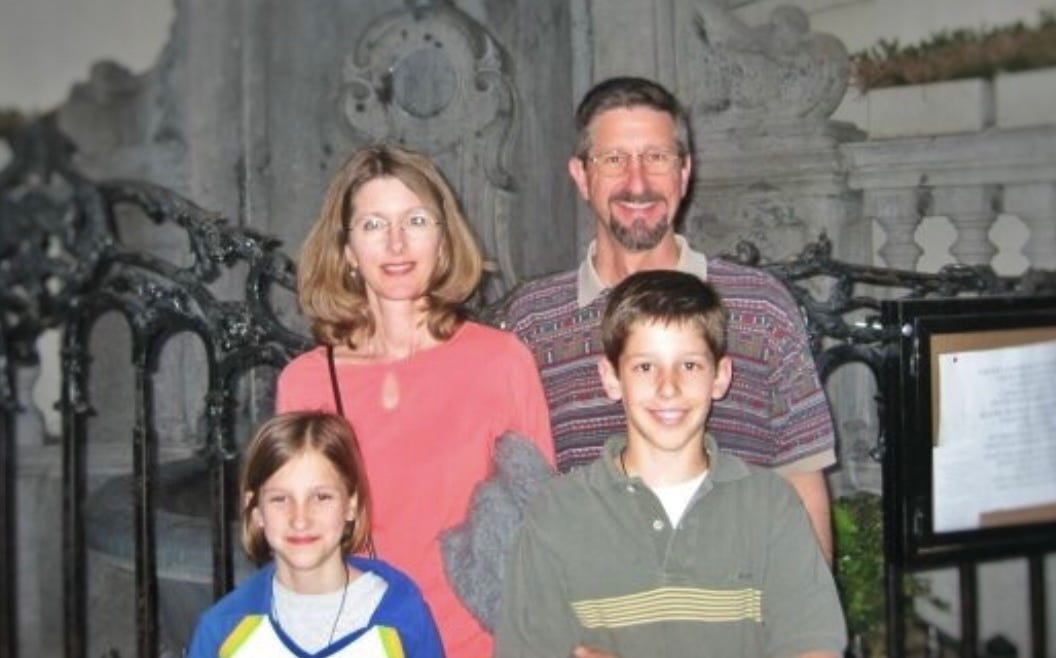In my first background post, I mentioned that growing up in religion, specifically evangelical Christianity for me, is existentially different from coming into it as an adult. I would like to go ahead and dive into that for this week. As a preface, let me outline how I’m going to present this. First, at the essence of this is a basic understanding of trauma, and since I’m not an expert, I’m going to use some outside support to lay a foundation. I will link the sources at the end of this piece, along with a few additional resources. Next, to communicate what I want to, I’m going to use my family and some generational trauma as an example. But since this is merely an example, yours and others’ experiences will likely differ. I hope though, that you can understand what I’m attempting to communicate and be able either to make connections with your own experiences or better understand others’. After this, I will compare and contrast my own experiences growing up in evangelicalism. People are the way that they are for a reason, including how they relate to religion and why.
Trauma and the Stress Response
First, let’s dig into understanding trauma and how it works. In her book The Deepest Well, Nadine Burke Harris, M.D. details how she came to understand the far-reaching influence of childhood adversity. Pinpointing the underlying cause of her patients’ issues became her goal and she realized that stress responses at the wrong time or for too long caused major issues in multiple body systems. She gives three levels of stress responses: positive stress response, tolerable stress response, and toxic stress response. To quote her,
“A good example of positive stress is one that many athletes can relate to: pregame jitters. . . An example of a tolerable stress response would be a child who reverts back to bedwetting after his parents’ divorce. The split isn’t acrimonious, and while the dad moved out, both adults are committed to co-parenting and understand that their child needs stability and extra support. As a result of that buffering of the child’s stress, he stops wetting the bed after a few months. . . A toxic stress response can occur when a child experiences strong, frequent, and/or prolonged adversity—such as physical or emotional abuse, neglect, caregiver substance abuse or mental illness, exposure to violence, and/or the accumulated burdens of family economic hardship—without adequate adult support” (Harris, 54).
We all experience positive and tolerable stress responses. These are not the responses that cause lasting harm or what we would call trauma—toxic stress causes the lasting harm. In the second chapter, she explains how hormones work together to maintain a balance throughout the body. But if just one hormone gets thrown off, it affects all of them “by altering how other hormones do their jobs” (Harris, 20). Every time the stress response, or “fight or flight” gets triggered, the same biological processes get initiated. So, sometimes this process is good and helpful, but it can also be harmful. The difference, Harris says, “is the timing and durationof exposure to the stress hormone” (Harris, 22). The stress response in adulthood has less lasting effects, depending on duration, than it does in childhood. In the first years of a human’s life, their brain is developing so rapidly that exposure to the stress hormone too soon and for too long will have detrimental effects on development that can last into adulthood and even throughout their whole life.
The stress response is necessary for survival. It clues us into danger, to when we aren’t safe. Fear is the emotion connected to the stress response. So what starts off this stress response that makes us feel fear, that makes us fight or flee or fawn or whatever we have to do to survive? The amygdala is responsible for initiating the process. And for this piece, it is the only part I’m going to mention, but do know that there are other parts of the brain and body that participate in the stress response. The amygdala initiates the stress response by identifying threats. It has a very important job for survival. If you can’t identify a threat, you can’t do anything about the threat. However, as Harris points out,
“when the amygdala is repeatedly triggered by chronic stressors, it becomes overactive, and what we see is an exaggerated response to a stimulus. . . The other thing that happens when the amygdala is chronically or repeatedly activated is that it starts messing up its predictions about what’s scary and what’s not. The amygdala begins sending false alarms to the other parts of your brain about things that shouldn’t actually be scary, just like the little boy who cried wolf” (Harris, 67).
An example of the stress response becoming overactive and sending false alarms is PTSD in war veterans. Even though the trauma isn’t from childhood, with PTSD the stress response gets stuck in the past. Harris explains that “this condition is an extreme example of the body remembering too much. With PTSD, the stress response repeatedly confuses current stimuli with the past in such a dramatic way that it becomes hard for these vets to live in the present. Whether it’s a B-52 bomber in the sky or a commercial airliner overhead taking tourists to Hawaii, their bodies feel the same—in mortal danger.” (Harris, 47). In PTSD, we see very clearly how the amygdala both exaggerates its response to stimuli and messes up its predictions about what is scary, or what is a threat.
To help her identify when her young patients had more going on than what they presented with, Harris used what is called the ACE score. ACE stands for Adverse Childhood Experience. Knowing a person’s ACE score clued her in to more context. For example with patients whose primary complaint was ADHD, Harris knew “if a patient had four or more ACEs, she was thirty-two times as likely to have learning or behavioral problems, which suggested that the underlying issue was probably not ordinary ADHD. In those cases, [Harris] was convinced that the problem was chronic dysregulation of the stress response system, which inhibited the prefrontal cortex, overstimulated the amygdala, and short circuited the stress thermostat—in other words, toxic stress.” (Harris, 61). In her study and practice, Harris realized the importance of using the ACE questionnaire to accurately diagnose and treat her patients.
From this short bit on trauma and toxic stress, we know that 1) toxic stress is a prolonged or frequently activated stress response. 2) Stress too soon in human development causes multi-system issues through hormonal imbalance. 3) An overactive amygdala can become dysregulated and send false alarms. 4) Whether there is a real threat or a false alarm, our bodies feel and respond the same. 5) A person’s ACE score clues us in that they experienced some level of toxic stress, which would have effects on their bodies and brains.
Toxic Stress and Evangelicalism
Now with our understanding that trauma can have lasting effects on the brain and body, we can better understand the different attitudes people have toward evangelicalism, and religion in general. My mom’s side of the family has a heavy history to it. We have generational trauma going back at least four generations (from my generation), and maybe even further. The effects of this trauma are varied and vast, but I will focus on my mom’s generation. I don’t know as much about my dad’s side of the family, so I can’t speak to his childhood. Details aren’t necessary, nor would it be appropriate for me to go into detail about the specific traumas my mom and her siblings experienced. All that is necessary to know for this is that they grew up impoverished, neglected, and abused. They lived with toxic stress. Their entire childhoods were survival. With constant instability, insecurity, and danger being all your body and brain knows, it is logical and expected that the first things to offer stability and safety would take a deeply important place in your life and become rooted in your body. Religion, specifically evangelical Christianity, turned out to be one of the first stable and safe things in my mom’s life. It is also how she met my dad, who was also safety and stability to her. Having grown up in an environment never knowing what threat was coming next, where she developed survival techniques and coping mechanisms, it makes sense that she wanted to protect her own children from that same toxic stress. And with evangelical Christianity being safety and stability to her, you can logically follow how she would want to raise her children in that safety and stability. Now, this is where we need to understand the difference of the influence the teachings and doctrines of evangelicalism have on an adult’s brain versus a child’s brain. Keep in mind that an adult’s brain is already mostly developed, while a child’s brain is rapidly developing. Therefore, the teachings and doctrines of evangelicalism, or other religions, influence an adult’s brain differently than a child’s brain.
Before I continue, let me be very, very clear. With this piece, I am NOT saying that my experience was just as, or even nearly as, traumatic as my mom’s and her siblings’. Not at all. I wouldn’t be surprised if their ACE scores were 7 or higher, while mine is a 1, maybe 2 depending on how I could answer the questions. These scores indicate that our experiences are worlds different, mine being much less traumatic. My point in using my family history as an example is ONLY to illustrate how evangelicalism functioned in their lives vs how it has functioned in mine. I also want to be clear that I am not placing any blame on my parents for raising me in evangelicalism. They did the best they could with what they had, and I am forever grateful. They gave me a better life and better opportunities than they had. My criticism is of evangelicalism as a belief system, not that my parents raised me in it. With that said, let me now explain how evangelicalism affected my growing and developing self.
As I mentioned in my first background post, one of the teachings of evangelicalism is original sin—that we are evil from birth and deserve to be punished in an eternal conscious torment of flames and abandonment after we die. And the only way to escape is to believe a specific way and to pray for forgiveness. Now, logically, burning forever with no relief is terrifying. That is a threat of danger. While each child is different, the threat of eternal torture and abandonment triggers the stress response to some level. Jamie Lee Finch grew up in evangelicalism and has since left, but she wrote a book about it. In You Are Your Own, she not only shares her experience, but she also gives a brief history of white evangelicalism and its problematic origins. In addition, she goes into how the teachings and methods of teaching have led to religious trauma. In particular her citing of Peter Levine’s Waking the Tiger and then expounding upon him is relevant here,
“Trauma is determined by how the body responds to an incident, not the actual incident itself (Levine 128). The psychological response to an on-going experience may have greater pyscho/physiological consequence than the nature of the event itself, and it is that subsequent response that initiates the potential for the development of PTSD. Trauma occurs when any event or situation creates an unresolved impact on an organism and can be quite succinctly defined as an ‘overwhelming event.’ It is an individual person’s unique threshold for what is ‘overwhelming’ that determines the development of Post Traumatic Stress and eventually PTSD” (Finch, 62).
Remember how Dr. Harris talks about the effect of an over-triggered amygdala? It overreacts and sends false alarms. This is what develops the “unresolved impact” Finch talks about in the above quote. The threat of eternal torment is a psychological trauma because the threat never goes away. I talked about my anxiety and my fear as a child in my first background post. If I hadn’t understood or hadn’t been genuine in my asking forgiveness, then how would I know if I was truly safe from eternal torment? I could never truly be safe from the threat, no matter how many times my amygdala warned me about it. Regardless of how “not that bad” or nonsensical a traumatic event or trauma response may seem to you, the reality is that the stress response is the exact same because it is a biological process. And when we experience it too soon or for too long, it leads to detrimental effects. For me, I have had anxiety my entire life. I was 9 years old when my trichotillomania (pulling hairs out) was triggered. I have also had trouble sleeping for as long as I can remember. My appetite is incredibly sensitive as well. These then can contribute to other problems. Then, as we who grew up in evangelicalism get older, the traumatic teachings get worse. Specifically, we are sexually repressed to the point that many women experience PTSD symptoms when they first try to engage with anyone sexually or intimately. There are many other harmful teachings, but these are just a few examples of how evangelicalism can cause trauma on a developing brain.
Each person has a different sensitivity level, meaning that for those of us who grew up within evangelicalism, we will all have experienced the stress response differently in relation to what we were taught. However, evangelicalism being a source of trauma for many people is a fact. Dr. Marlene Winell coined the term Religious Trauma Syndrome (RTS) relatively recently. In reporting about her reading, Finch points out that “while the term does not exclusively apply to evangelical Christians, that was Dr. Winell’s personal experience being raised by fundamentalist Christian missionary parents. RTS is a function of both the chronic abuses of harmful religion and the impact of severing one’s connections with one’s faith, and it can be easily compared to PTSD and Complex PTSD” (Finch, 61). I want to be clear that I am speaking specifically about evangelicalism. But I don’t think Jesus and his teachings are harmful. I believe Jesus is separate from religions.
Here now we have evangelicalism being safety for my mom and evangelicalism being a constant threat to me. While I personally believe that most of the teachings of evangelicalism are harmful in general, I believe they are especially more harmful to children because of the long lasting effects they have through toxic stress. This is also true of other denominations and religions. If you have experienced either side of this and have a hard time understanding why others feel so strongly and differently than you do, then I hope this explanation of trauma, the stress response, and toxic stress is helpful in adding context and nuance to your understanding. It has taken me a few years and a lot of healing and learning to come to this understanding. I wanted to share what I have learned so far, but I am far from having arrived in my learning.
I want to end this with a quote by Resmaa Menakem, a healer, an author, and a trauma specialist, whose work I look forward to learning from:
“Many times trauma in a person decontextualized over time can look like personality. Trauma in a family decontextualized over time can look like family traits, trauma decontextualized in a people over time can look like culture, and it takes time to slow down so you can begin to discern what’s what.”
Post Script
[My mom, my dad, me, and my brother in Belgium in 2003]
I don’t want to publish this without showing gratitude to my parents and bragging on my mom a little. So as a post script, let me share this with you. My dad was a quiet and gentle man. He provided for our family and took care of us as best he knew how. He was a deep thinker and a very studious man. One time he told me that he thought he’d missed his calling to be a teacher. It makes me incredibly sad knowing that he felt he couldn’t pursue that later in life. But I think he would have made a wonderful teacher. His dedication and his patience would have made him a kind and encouraging teacher. My mom says that he would always tell her that she took his breath away. He loved her, his family, and his community. And my mom is a determined and brilliant woman. Remember that I said I wouldn’t be surprised if she had an ACE score of 7 higher? And remember how Dr. Harris said that people with ACE scores of 4 are thirty-two times as likely to have learning or behavioral problems? Even with a high ACE score, my mom earned a certificate in nuclear physics and went on to work at an engineering company. She would visit a nuclear plant in New York once a month for her work. She did all this as a single mom. Then, when my brother and I were still in elementary school, my mom went to nursing school and got an associate’s in nursing AND she was the valedictorian of her graduating class. So if my mom could have had adequate support and safety as a child, she very well could have been a certified genius, or close to one. I am a combination of studiousness and brilliance, of gentleness and determination. I stand on the shoulders of incredible people. My parents taught me to be brave. They taught me that sometimes we have to do hard things or things that scare us, and that it’s better to try my best than to let fear control me. My mom said of speech class, that even though it’s scary, do it and do it well so that you don’t have to do it twice. People already know you’re nervous and that’s okay. My mom said of cleaning up a patient who had soiled themselves, to do it quickly and efficiently, so that the patient is taken care of and you don’t have to spend as much time doing it. The wisdom my parents acquired they shared with me. And they taught me to love Jesus more than religion. So here I am today doing hard things and facing fears head-on. So here I am today overcoming anxiety and succeeding through determination. So here I am deconstructing and wrestling with my faith and settling into peace and groundedness. Even though my dad is gone, and even though, with my mom, unresolved trauma combined with insecurities (on both our ends) have so far prevented a strong relationship, I will always be grateful for my parents and what they gave me. Without my parents, I would not be me. And I love being who I am and growing into all the potential I can be.
[Me with my summer haircut, and satisfied with a dirty face from working with cast iron pipe]
Books Cited and Additional Resources:
The Deepest Well: Healing the Long-Term Effects of Childhood Adversity by Nadine Burke Harris, M.D.
The Body Keeps the Score: Brain, Mind, and Body in the Healing of Trauma by Bessel van der Kolk details how the body is affected by trauma and how it remembers traumatic experiences. It’s a longer book and has some graphic details in it. I recommend it if you are eager to continue learning about trauma, but do warn about the potentially disturbing details.
Brene Brown has done a lot of research on shame and difficult emotions.
Resmaa Menakem is a trauma specialist and healer.
Jamie Lee Finch is an embodiment coach, educator, and author.








